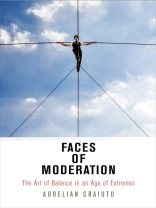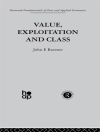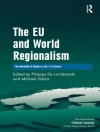Aristotle listed moderation as one of the moral virtues. He also defined virtue as the mean between extremes, implying that moderation plays a vital role in all forms of moral excellence. But moderation’s protean character—its vague and ill-defined omnipresence in judgment and action—makes it exceedingly difficult to grasp theoretically. At the same time, moderation seems to be the foundation of many contemporary democratic political regimes, because the competition between parties cannot properly function without compromise and bargaining. The success of representative government and its institutions depends to a great extent on the virtue of moderation, yet the latter persists in being absent from both the conceptual discourse of many political philosophers and the campaign speeches of politicians fearful of losing elections if they are perceived as moderates.
Aurelian Craiutu aims to resolve this paradox. Examining the writings of prominent twentieth-century thinkers such as Raymond Aron, Isaiah Berlin, Norberto Bobbio, Michael Oakeshott, and Adam Michnik, he addresses the following questions: What does it mean to be a moderate voice in political and public life? What are the virtues and limits of moderation? Can moderation be the foundation for a successful platform or party? Though critics maintain that moderation is merely a matter of background and personal temperament, Craiutu finds several basic norms that have consistently appeared in different national and political contexts. The authors studied in this book defended pluralism of ideas, interests, and social forces, and sought to achieve a sound balance between them through political trimming. They shared a preoccupation with political evil and human dignity, but refused to see the world in Manichaean terms that divide it neatly into the forces of light and those of darkness. Faces of Moderation argues that moderation remains crucial for today’s encounters with new forms of extremism and fundamentalism across the world.
Jadual kandungan
Prologue. In Search of an Elusive Virtue
Chapter 1. The Ethos of Moderation
Chapter 2. The Lucidity of Moderation: Raymond Aron as a ‘Committed Observer’
Chapter 3. Moderation as an Antidote to Monism: Isaiah Berlin’s Cold War Liberalism
Chapter 4. Meekness as a Face of Moderation: Norberto Bobbio’s Politics of Dialogue
Chapter 5. Moderation and Trimming: Michael Oakeshott’s Politics of Skepticism
Chapter 6. Radical Moderation and the Search for Moral Clarity: Adam Michnik’s Lesson
Epilogue. Beyond the Golden Mean
Notes
Bibliography
Index
Acknowledgments
Mengenai Pengarang
Aurelian Craiutu is Professor of Political Science at Indiana University, Bloomington. He is author and editor of several books on French political thought, most recently A Virtue for Courageous Minds: Moderation in French Political Thought, 1748-1830.












